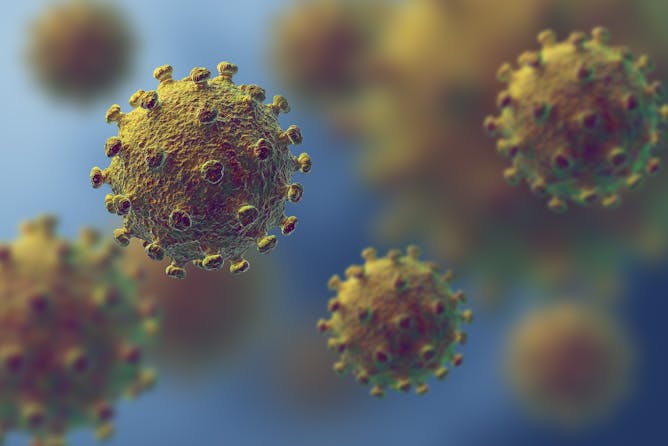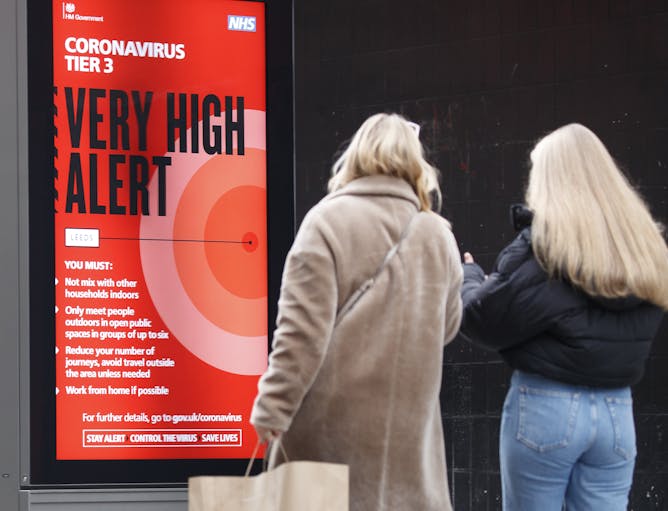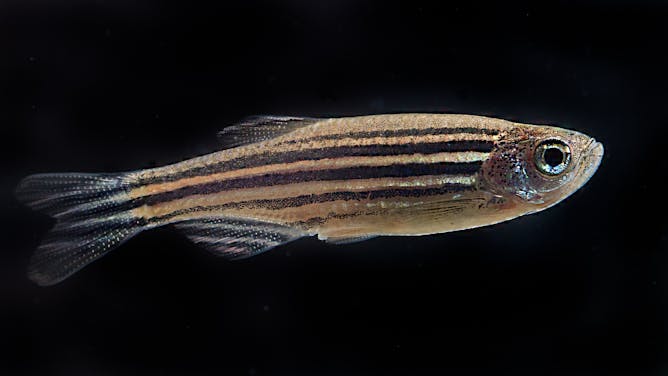|
|
|
|
Since the early days of the coronavirus outbreak, The Conversation has mobilised resources to cover the crisis. That has resulted in thousands of articles, such as today’s lead on virus mutations like the new strain that has been attracting much attention in the UK. It has also allowed us to bring academic voices to you via webinars, such as this morning’s, which pulls together expertise from the UK and Australia.
We feel it is crucially important that such deep knowledge is channeled directly to the public at this time. This pandemic has spawned rumours, confusion and panic. We have sought to counter that, providing information grounded in research excellence. Looking to 2021, the crisis will enter a new phase, as more vaccines are rolled out widely. Elsewhere, there’ll be half-truths and questionable assertions. Here, expect compelling independent journalism, from people who know what they’re talking about.
To keep delivering that, and to reach more people, we need your help. We recently launched a mini-campaign asking you to donate to The Conversation, a charity, if you enjoy and value what we do. We had more than 400 donors over the past week. We’re aiming for 800. That would help us provide more platforms for reliable academic journalism, such as a new podcast that will roll out in the new year. Can you help us hit that target? If so, donate here.
We greatly appreciate the support of all of our readers, and understand that this has been a tough year for many of you. So, if you like what we do, but can’t afford to donate, then please forward this email to colleagues, friends and relatives and encourage them to sign up.
Thank you.
|
Stephen Khan
Executive Editor, The Conversation
|

|
|

Shawn Hempel/Shutterstock
Matt Webster, Anglia Ruskin University
SARS-CoV-2 mutates all the time, creating new variants. That doesn't automatically mean it's getting more harmful or better at spreading.
|

Shoppers in Leeds walk by a coronavirus alert signe.
PA/Danny Lawson
James Cheshire, UCL; Alex Singleton, University of Liverpool
Counties, local authorities, councils – how you divvy up the map changes the game significantly.
|

Zebrafish are small, freshwater fish native to South Asia.
Per Harald Olsen/NTNU
Rachael Morgan, University of Glasgow
Species can evolve to tolerate higher temperatures – but there's a ceiling beyond which adaptation isn't possible.
|
Health + Medicine
|
-
Kathy Liddell, University of Cambridge; Mark Toshner, University of Cambridge
The UK government needs to show solidarity with the public.
-
Jean Strelitz, University of Cambridge
'One-size-fits-all' weight loss advice could be inadvertently harmful to some patients.
|
|
Politics + Society
|
-
Mara Yerkes, Utrecht University; Chantal Remery, Utrecht University
Dutch parents worked more and had less leisure time – particularly if they were women.
-
Christopher J. Murphy, University of Salford
Le Carré drew on his own experience to change public perceptions of the world of spying.
|
|
Business + Economy
|
-
Gavin Brown, University of Liverpool; Richard Whittle, Manchester Metropolitan University; Stuart Mills, London School of Economics and Political Science
With limits on family time this Christmas, are we going to supplement Christmas spirit with presents?
|
|
Cities
|
-
Anupam Nanda, University of Manchester
Making cities greener is a vital endeavour – but one that comes with potential pitfalls.
|
|
Environment + Energy
|
-
Marc Hudson, Keele University
A year out from the postponed 26th UN conference, the UK held an online meeting to drum up goodwill for climate action.
|
|
Arts + Culture
|
-
Liam Kennedy, University College Dublin
While the genre is now overwhelming white, its roots are in Black music.
|
|
| |
Featured events
|

|
University of Reading (online), Reading, West Berkshire, RG1 6UR, United Kingdom of Great Britain and Northern Ireland — University of Reading
|

|
East Road, Cambridge, Cambridgeshire, CB11PT, United Kingdom of Great Britain and Northern Ireland — Anglia Ruskin University
|

|
Online, York, York, YO10 5DD, United Kingdom of Great Britain and Northern Ireland — University of York
|

|
East Road, Cambridge, Cambridgeshire, CB11PT, United Kingdom of Great Britain and Northern Ireland — Anglia Ruskin University
|
|
|
|
| |
| |
| |
| |
| |
|
|
|
|
|
|
|